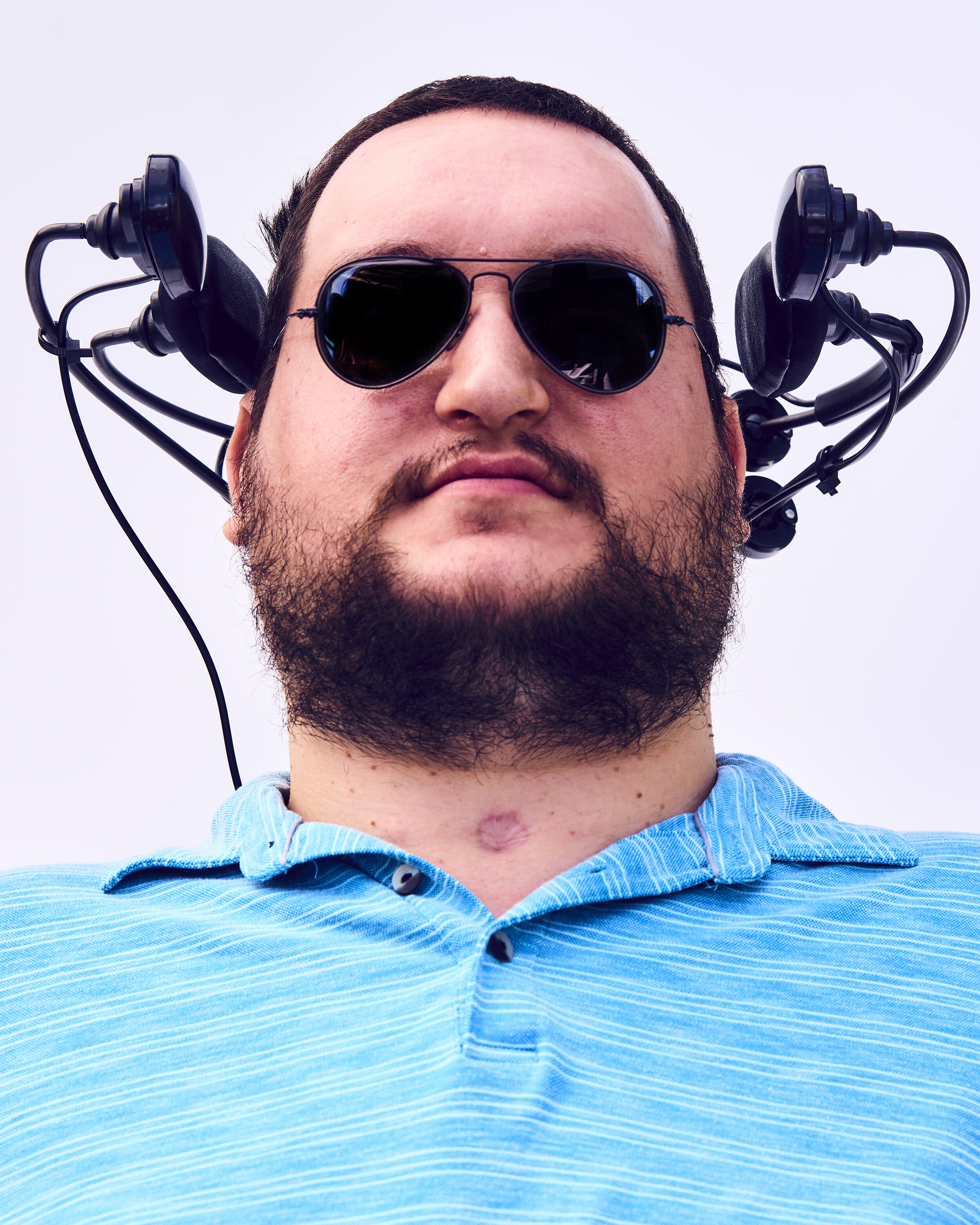Care Team Bios
Keith Gurgui
Keith Gurgui was raised in a family of nurses, which influenced his passion for health care advocacy. In 2009 Keith sustained a spinal cord injury from a swimming accident which left him wheelchair bound, and requiring full-time home care support. Since then Keith has been outspoken for disbility rights, and currently works as a Systems Advocate at the Resource Center for Accessible Living. Additionally, Keith has been an advocating to raise the wages of home care workers in New York State through the New York Caring Majority Campaign and is a member of Hand in Hand: The Domestic Employers Network.
Tyler Tunison
Tyler Tunison is a home healthcare worker who loves and is deeply committed to his job, but as the sole provider for his family struggles to due to the low pay. When he's not working, he is busy caring for his 7 year old daughter, Tessa and 3 year old autistic son, Torin. Tyler is a proud member of the New York Caring Majority campaign to win better wages for home care workers, and is a member of Hand in Hand: The Domestic Employers Network.
Interview Transcript
Tyler: My name is Tyler Tunison, and I do home health care for a living, and currently I am working with my client, Keith Gergi, the kind of person Keith is to me, he's very book smart. He reads a lot. He also is very involved with his family, which I love. He always has a sister coming by and other family members just stopping in. It's seems like a very cohesive family and I like that about him also.
Keith: My name is Keith Gurgui. Caregiving is essential. Caregiving is what keeps me alive. I couldn't be independent without caregivers. Ever since I had my spinal cord injury two thousand nine, I've been relying on other people to do essentially everything for me. I mean, I can chew and swallow my food and talk, but when it comes to physical things, caregivers are my arms and legs. They do those things for me. From when I wake up, caregivers bathe me, position my arms and legs and body, caregivers clothe me and transfer me into my wheelchair so I can be a little more independent. So it's yeah, it's everything.
Tyler: I became a care worker through my brother. He's been doing the same type of work also for about 20 years now, and he thought it would be something I'd be interested in and good at caregiving to me means giving individuals the opportunity to live dignified lives on their own terms and being able to do what they want to in their life. I'm just glad to be able to assist in helping that.
Keith: I think maybe caregiving is giving me a bigger perspective on what my parents do. As nurses, you have to learn to be patient. I always know, I think kind of how I'm feeling and analyze myself. So I guess maybe I'm slightly more introspective now, like as I have as the years have gone on with receiving care from others and being dependent on everything like year one is much different. The Keith that year, one post injury was much different than Keith at year five and Keith at year 10. I think if that was one way to say it, I've matured.
Tyler: There is a lot of disparity and stuff that we don't get to see because it's not right out in the public. A lot of these people are at home for the most part, so you don't see their struggle on an everyday basis. And I think it needs to be put more on the forefront of things and let people know about people who need this type of work and who benefit from it.
Keith: I don't think personal care is treated like the profession that it is. It's the most intimate, if you think about it, touching somebody, bathing, somebody dressing, transferring, being their arms and legs. So I wish it was taken a little more seriously as instead of it's just like grunt work, people work, need to get taken care of. It should be kind of elevated to more of like a degree or a license and like an essential service as it is in health care, keeping people in their home and in the community. So it should be kind of elevated to the level of seriousness that it is, because without it, people go to the hospital and people die
Tyler: to make it more fair and equitable. We need a better pay wage. And I think it needs to be more of a prestigious type of job. And with the higher pay wage and I know at my job, especially where we've been losing a lot of workers and we haven't been getting the same inflow to keep schedules full and everything. And I just think with a higher working wage, people would be more inclined to stay, and has to leave and find other work.
Keith: You need to be able to care for yourself before you care for others. And I don't think any caregiver should have to rely on public benefits or or have to, you know, just make ends meet to be able to then care for somebody else. That's not right. If they invest four hundred billion dollars and how it can be home based services and if the money can get to the care workers, yes, it could be life changing. If you could up the pay the fifteen, twenty, twenty five dollars an hour and make personal care like a respected profession.
Tyler: Everybody gets old. Everybody is either going to have a family member or something that they're going to need some kind of care for and either have it affect them directly or some way indirectly. And I think it's important because of that, because it's an all encompassing thing that is going to affect everybody, everybody should be committed to making this a better job and better care for the people who need it.




